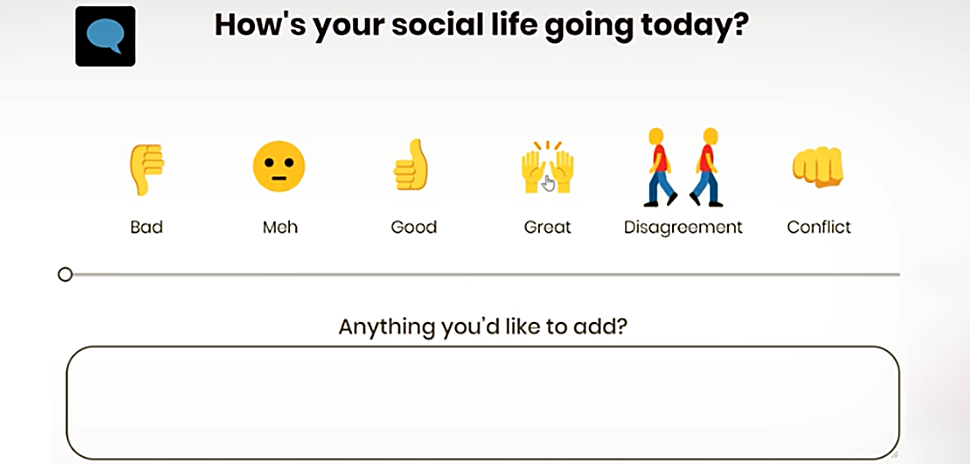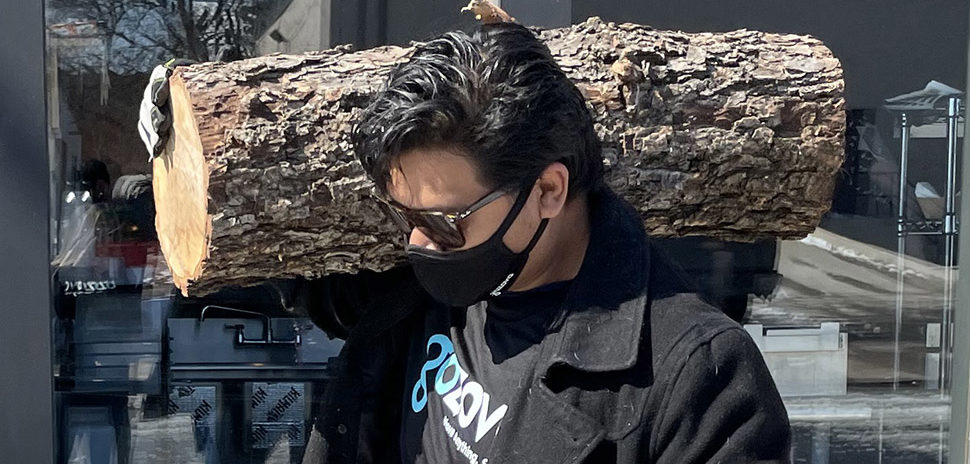As a career coach, Laurel Donnellan has been on a mission to guide people from “just a job” to their ideal positions.
She’s developed a 12-step process over the past 16 years to help people make the transition, but with a new website she hopes to “democratize access” to the model.
Recently, the Austin resident joined forces with a former client, Parissa Behnia of Chicago, to jump start the business. The two met at Startup Weekend Fort Worth earlier this month to bring the idea to life. The 54-hour event challenged participants to pitch ideas and launch a business all in one weekend.
“It was awesome I think in retrospect for both of us to be in a city that we really didn’t know that well because we couldn’t rely on acquaintances. It was only going to be as good as how good we were at meeting new people,” Behnia said.
She said they plan to continue developing relationships with professionals they met.
“We were very happy to see the level of engagement generally in Fort Worth, so we are looking to leverage all the great technology resources that are in the area,” she said.
Behnia and Donnellan talked with Dallas Innovates recently about the inspiration for their new business and what plans they have for its future. Responses have been edited for brevity and clarity.
What’s your background? Have you been involved with any other businesses?
Donnellan: My background is in the hospitality business. I have an undergrad [degree] in hotel management. Ultimately, I worked for a real estate management company that managed nine hotels. That was my last real job. We sold that in 1997 and I’ve been working on helping people transition in careers since then. So, I am a career coach.
Behnia: I have a MBA and I worked in financial services for about 11-12 years. For the last, six or seven years, I’ve had my own consulting practice. So, I do strategic business advisory and I’ve been an active part of the entrepreneurial community in Chicago for a couple of years. I am an angel investor and one of the companies I invested in had a successful exit and was acquired by Groupon in 2014. I have an affinity for anything entrepreneurially-oriented, with a sweet spot for female founders.
What led you to start DreamMob?
Donnellan: Parissa was in a career transition and came to me as a client. She went through a process that I’ve developed that is a comprehensive way to go from just a job to your dream job. In that experience, we got to know each other very well and I approached her about possibility helping me in a new venture. We met about that for a couple of times then we decided the way to accelerate that was to do Startup Weekend [Fort Worth].
Behnia: One of the things Laurel and I had talked about was it turns out that 80 percent of people around the world who are employed full time are disconnected and disengaged with their jobs. They’re not feeling it. We both thought that is a prodigiously sad statistic.
One of the other things we had discussed was a lot of people would benefit from having the content and IP that Laurel has developed — she has this 12-step process. We said, ‘wouldn’t it be great if we could democratize access to this?’ Because when someone decides they are in transition or realizes they are in transition, they are looking for some sort of guidance as to where to go next. It becomes a nonstarter for many people to find a coach either because it’s budget, time, competing priorities, whatever, there are multiple reasons for it.
Can you tell me more about your product/business and explain how it works?
Behnia: All these online learning platforms are really hot, not only in terms of people actually using them but also people investing in them. So, the way the product is laid out or the way our prototype is laid out is that there will be a variety of offerings across a variety of price points that will be the digital representation of Laurel’s content. So, more specifically, we’ll have some free products which will include an online career assessment, [and] some videos that Laurel has developed as people are thinking about where they’d like to go next or how they’d like to go next. There will be a couple of books for sale and we’ll also have an online class that people can enroll in. We’ll also have this community of people who [sign up]. We are calling them ‘mobbers.’ There’ll be a community of ‘mobbers’ supported by mentors whereby people can have a conversation, engage with real people as opposed to feeling like they are all by themselves in this career pathing process.
“At the foundation, we are creating a movement that gives people permission to dream and actually create work around their dreams.”
Laurel Donnellan
Donnellan: Overall, we want to help younger professionals — people in college through about age 35. [We want] to engage with them so that they can spend some time really thinking through — in a way that’s organized — what their dream job is and we can help them get there. At the foundation, we are creating a movement that gives people permission to dream and actually create work around their dreams.
Behnia: The future state is something very much community-based, something that is subscription-based. If you could imagine, almost like an Amazon Prime or Netflix, you pay either a month-to-month or an annual fee and there’s always something new that you are circulating in the library. That’s what the future state [of DreamMob] is going to look like in addition to paying for ad hoc classes and so on and so forth.
What’s going to differentiate your business from others in the field?
Behnia: One is, Laurel is very humble. She has developed this IP over this very storied 16-year career, so she has validation of this IP among hundreds of people who have worked for her. This exclusive IP is something the competition does not have. …
Anther significant thing we’d like to point out is what we see from the competition is there is a lot of broadcasting of the content, but what they’re not doing is acknowledging the very human factor around what happens when someone is in transition or they don’t enjoy their careers anymore. The feeling of solitude. By creating this community that we are calling, ‘mobbers,’ they know that there are people just like them.
“There’s this idea of empathy and sometimes sympathy that can help drive people forward.”
Parissa Behnia
In the future, we envision that maybe they will do skill swapping with one another. Maybe, they will share contacts with one another. Maybe they will network with one another such that it’s almost like karma or paying it forward. So, people are getting to know one another and they are supporting one another in whatever path it is that they have decided for themselves as opposed to how people typically feel when they are in transition especially people who have been laid off where it’s low self-esteem or they don’t know who it is they can confide in. Or people who have decided they want to quit their jobs or whatever it is, at least they know that there are people like them that know how they feel. There’s this idea of empathy and sometimes sympathy that can help drive people forward.
What’s your plan to create the community of “mobbers?”
Behnia: The art in any good community and why some communities survive rather than other communities is really a function of the community manager. But, standing behind the community manager are the mission, the vision, and the values of DreamMob fully understood and almost within the DNA within the community manager or managers as well as the mentors. What will set our community apart from other people who try to emulate the community is it’s backed by the content and the IP that Laurel has developed.
We are actually going to have more of a moderated forum where it’s the mentors throwing out topics for people to share. Then, we’ll also have a lively discussion as opposed to just saying you’re on your own talk if you want to talk or don’t talk if you don’t want to talk and please don’t use bad words. There’s a difference between moderating and nurturing a community and what we’ll be doing is nurturing a community using the IP as our DNA and our backdrop.
Donnellan: One thing that comes to mind is the popularity of [NBC’s reality TV show] The Voice. I think one of the things I love about The Voice is everything is celebrated along with, so there really are no losers. There’s just artists developing their art form and getting encouragement from their coaches. I know what we’ll do with DreamMob is celebrate successes along the way. Eventually, we’ll have case studies and stories about people who are doing what they love to do and we’ll have mentors that have that experience. I think part of what we can create as far as attracting users is celebrating success, celebrating dreams, and celebrating the process in addition to the results.
Where are you at in product development?
Behnia: The beauty of all of this is, it is Laurel’s content. The heart of the content is done and some of the offerings we’ll have in our MVP, she’s already written in her life as an executive coach. We’ll be developing some on-demand video classes as well as some other forms of on-demand content that would be available in our initial offer. Every month we’ll have some new pieces of content for people to react to us, share their thoughts behind the pay wall with the rest of the community.
Donnellan: We actually have a working website today. It’s dreammob.co. And, people will have access to books and some free material right away. So, we are live. That happened over Startup Weekend [Fort Worth].
Have you raised any outside capital?
Behnia: One of the things we are looking to do is enter some pitch contests. For a lot of people, that’s a good way of getting some infusion of small amounts of cash. Then, we are also on the hunt for people who would be willing to be our sponsors and advocates in this early go.
Donnellan: So far we haven’t put in much money, but we are definitely interested in growing this to a global business and having lots of partners in the future.
Delivering what’s new and next in Dallas-Fort Worth innovation, every day. Get the Dallas Innovates e-newsletter.





























